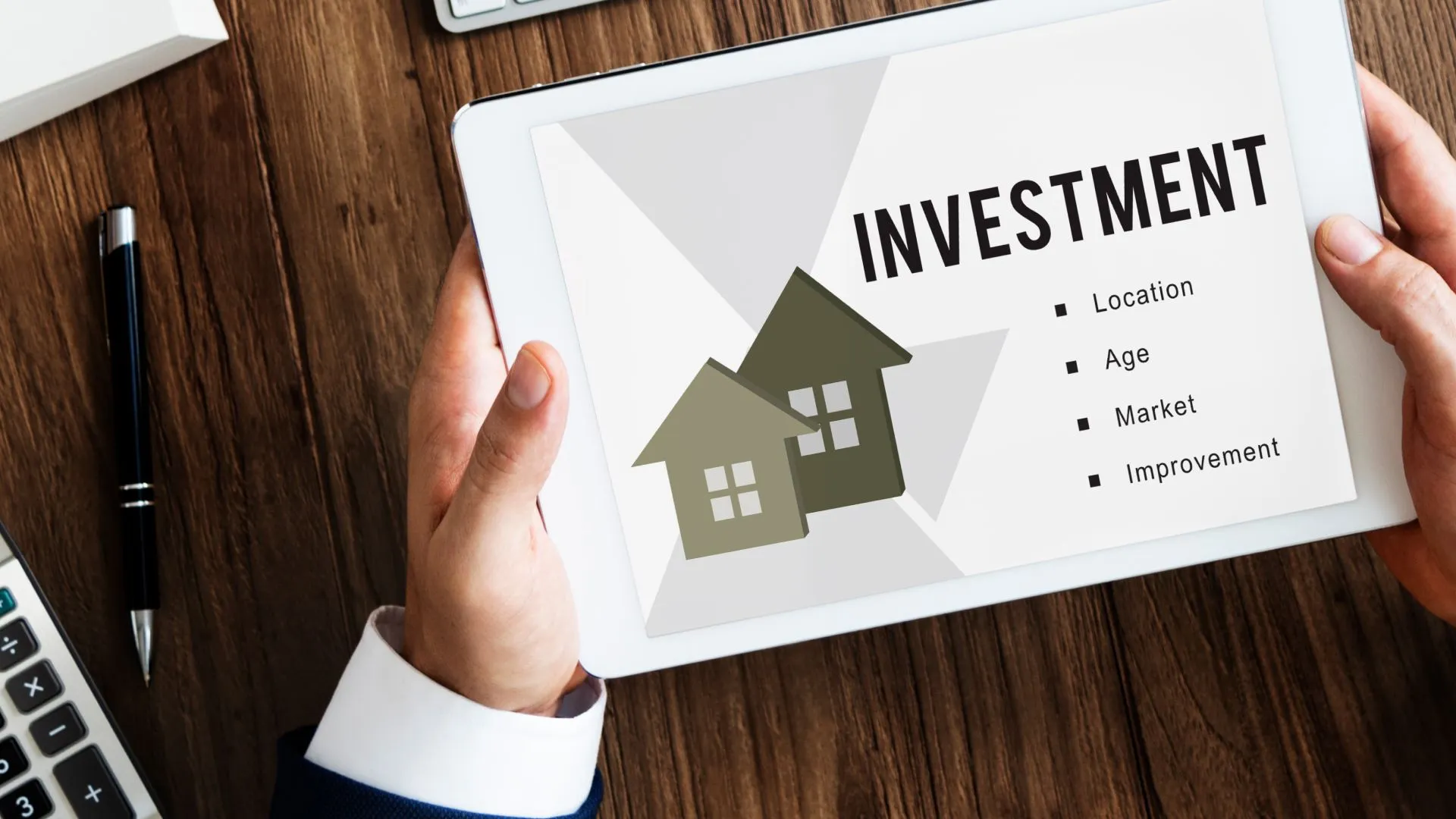Buying a House in Germany: A Comprehensive Guide for Expats

Author
Phil LeuciTable of Contents
- Understanding the German Real Estate Market
- Key Steps to Buying a House in Germany
- Financing Your Home Purchase
- Legal Considerations and Due Diligence
- Additional Costs to Consider
- Common Challenges and How to Overcome Them
- FAQs
- Conclusion
Understanding the German Real Estate Market
Germany is known for its stable economy, making it an attractive destination for real estate investments. However, the real estate market here operates differently compared to other countries. As financial experts deeply familiar with the German real estate market, we can provide valuable insights that will help you navigate this complex landscape.
In Germany, property prices can vary significantly depending on the location. For example, buying a house in Munich or Frankfurt can be significantly more expensive than in smaller towns like Leipzig or Bremen. The demand for real estate in urban areas has driven up prices, but there are still opportunities for savvy investors to find good deals, especially in up-and-coming neighborhoods.
If you're looking for properties in specific regions, our Real Estate Search Engine can help you explore the best options available based on your preferences.
Market Trends
In recent years, the German real estate market has seen a steady increase in property values, particularly in metropolitan areas. The rise in prices is attributed to factors such as low interest rates, an influx of foreign buyers, and a shortage of housing in key cities. As an investor or homebuyer, staying informed about these trends is crucial to making well-timed decisions.
Moreover, with the ongoing push for energy efficiency, properties that meet high energy standards are becoming increasingly popular. If you're interested in the financial benefits of energy-efficient homes, you might want to explore the KfW loan programs, which offer incentives for energy-saving investments.
Key Steps to Buying a House in Germany
Step 1: Financial Preparation
The first step in buying a house in Germany is to understand your financial situation. This includes determining your budget, which should account for the property price, taxes, and additional fees. Typically, you will need a down payment of 20% of the property's value, but this can vary depending on the mortgage lender.
To calculate the potential return on investment, especially if you're buying as an investment, you can use our Property Investment Calculator. This tool helps you estimate the long-term profitability of your purchase.
Step 2: Finding the Right Property
Once your finances are in order, the next step is to find a property that meets your needs. There are several online portals, such as Immobilienscout24 and Immonet, where you can search for properties across Germany. However, these platforms are often in German, so it's beneficial to have some understanding of the language or work with a bilingual real estate agent.
It's also important to consider the type of property you're looking for—whether it's a new build, an older home, or an investment property. Each comes with its own set of advantages and challenges.
Step 3: Legal Considerations and Paperwork
The legal process of buying a house in Germany involves several steps, including signing a purchase contract, which must be notarized. The notary (Notar) plays a crucial role in ensuring that the transaction is legally binding and that all necessary checks are completed. This includes verifying the ownership of the property, ensuring there are no liens, and confirming the terms of the sale.
Before signing any contract, it's advisable to have it reviewed by a legal expert to ensure there are no unfavorable terms. Additionally, you'll need to be aware of the Grunderwerbsteuer (property transfer tax), which varies by state but typically ranges from 3.5% to 6.5% of the purchase price.
Financing Your Home Purchase
Mortgage Options
Securing a mortgage in Germany is relatively straightforward, even for non-residents, provided you meet the financial requirements. Most German banks offer mortgages to foreigners, but the terms can vary. Typically, you will need to provide proof of income, credit history, and a down payment. It's also common to secure a mortgage pre-approval before starting your property search, as this increases your chances of closing a deal quickly.
Many buyers opt for fixed-rate mortgages, which provide stability over the loan term, typically 10 to 15 years. If you're interested in exploring your mortgage options, our Real Estate Search Engine can also connect you with financial advisors who specialize in expat mortgages.
Government Programs and Incentives
Germany offers several programs to help buyers finance their home purchases, especially if they are investing in energy-efficient properties. The KfW loans are particularly popular, offering low-interest rates for homes that meet specific energy standards. These loans can be a great way to reduce your overall mortgage costs while contributing to environmental sustainability.
If you're buying a property that qualifies for these programs, be sure to consult with an energy efficiency expert and include their recommendations in your planning. Additionally, some regions offer subsidies for families purchasing their first home, which can significantly reduce your financial burden.
Legal Considerations and Due Diligence
The Role of the Notary
In Germany, a notary is required to formalize the purchase of any property. The notary acts as a neutral party, ensuring that all legal requirements are met and that the transaction is fair for both the buyer and the seller. It's important to choose a notary who is experienced in real estate transactions, as they will guide you through the process and ensure that all necessary checks are completed.
Property Transfer and Registration
Once the purchase contract is signed, the notary will register the property transfer with the local land registry. This process typically takes a few weeks, during which the buyer must pay the property transfer tax and any remaining fees. After the registration is complete, you will receive the official ownership documents, and the property is legally yours.
If you're new to the German real estate market, working with professionals who understand the nuances of local regulations is crucial. Our team at FFE is always available to assist you with any legal questions you may have. Feel free to contact us for personalized advice.
Additional Costs to Consider
Taxes and Fees
In addition to the property price, there are several other costs associated with buying a house in Germany. These include the property transfer tax, notary fees, and registration fees, which together can add up to around 10% of the property's purchase price.
Estate agent fees are another significant cost. In Germany, these fees are usually split between the buyer and the seller and can range from 3% to 7% of the purchase price. It's important to factor these costs into your budget to avoid any surprises down the line.
Maintenance and Renovation Costs
If you're purchasing an older property, it's essential to budget for potential maintenance and renovation costs. Germany has strict building regulations, and older homes may require updates to meet modern standards. This could include anything from updating the electrical system to improving insulation or replacing the roof.
For those planning to make significant renovations, consulting with a local contractor and obtaining quotes before finalizing the purchase is advisable. This will give you a clear picture of the total investment required.
Common Challenges and How to Overcome Them
Language Barrier
One of the most common challenges for expats buying property in Germany is the language barrier. Most legal documents and contracts will be in German, which can be daunting if you're not fluent. However, many notaries and real estate agents offer services in English, or you can hire a translator to assist with the process.
It's also helpful to familiarize yourself with basic German real estate terminology. This will make it easier to understand contracts and communicate effectively with agents, sellers, and notaries. Some essential terms include "Grundbuch" (land registry), "Notar" (notary), and "Grunderwerbsteuer" (property transfer tax). Understanding these terms can help you feel more confident throughout the buying process.
Navigating Local Regulations
Germany has a well-structured legal framework for real estate transactions, but it can be complex for those unfamiliar with it. Local regulations can vary from state to state, particularly regarding property transfer taxes and building codes. It's crucial to be aware of these regulations before making any commitments.
For example, in some regions, the property transfer tax can be as high as 6.5% of the purchase price, which is a significant cost that needs to be accounted for in your budget. Additionally, certain historical or listed properties may have restrictions on renovations, which could impact your plans if you're looking to remodel or upgrade the property.
To avoid potential pitfalls, it's advisable to work with a local real estate lawyer who can guide you through the legal requirements and ensure that all aspects of the purchase are compliant with local laws. If you need personalized advice, don't hesitate to contact us for expert guidance.
FAQs
Can foreigners buy property in Germany?
Yes, foreigners can buy property in Germany without any restrictions. The process is relatively straightforward, but it’s important to understand the legal requirements and financial implications. Working with a local notary and real estate agent can simplify the process.
What are the typical costs associated with buying a house in Germany?
When buying a house in Germany, you can expect to pay additional costs such as the property transfer tax (3.5% to 6.5%), notary fees (around 1.5% to 2%), registration fees (about 1%), and potentially estate agent fees (up to 7%). These costs can add up to approximately 10% of the property’s purchase price.
How long does the process take from start to finish?
The process of buying a house in Germany can take several months from start to finish. This includes the time needed for property search, securing financing, legal checks, and finalizing the purchase contract. The actual transfer of ownership usually takes a few weeks after signing the contract.
Do I need to be fluent in German to buy a house?
While fluency in German can be helpful, it is not necessary to buy a house in Germany. Many notaries and real estate agents offer services in English, and you can also hire a translator if needed. Understanding basic real estate terms in German, however, can be beneficial. Additionally we can assist you in navigating the real estate process, as our team is fluent in German and can help bridge any language gaps, ensuring a smooth transaction for you.
What are the tax implications of owning property in Germany?
Property owners in Germany are subject to several taxes, including the annual property tax (Grundsteuer) and, if the property is rented out, income tax on rental income. Additionally, capital gains tax (Spekulationssteuer) may apply if the property is sold within ten years of purchase for investment purposes (e.g., renting it out). However, for owner-occupiers, the property can be sold tax-free after just three years. It’s advisable to consult with a tax advisor to understand the full implications. We can also provide guidance, leveraging our expertise in German tax regulations to help you navigate these requirements effectively.
Conclusion
Buying a house in Germany can be a rewarding investment, but it requires careful planning and an understanding of the local real estate market. By familiarizing yourself with the key steps, financing options, legal considerations, and potential challenges, you can navigate the process with confidence.
Whether you're looking for a family home, an investment property, or a vacation retreat, Germany offers diverse opportunities to meet your needs. Utilize tools like our Real Estate Search Engine and Property Investment Calculator to make informed decisions and maximize your investment potential.
For personalized assistance, feel free to contact us. Our team of experts is here to guide you through every step of the home-buying process, ensuring a smooth and successful experience.



